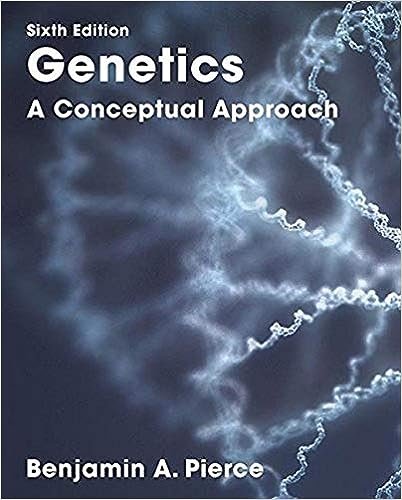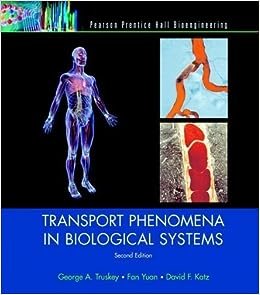Courses
BIOE 3470: Transport Processes in Bioengineering
Credit Hours: 3
Semester: Fall
Offered: 2018, 2019, 2020, 2021, 2022, 2023
Course Overview:
The goals of this course are to provide an introduction of fundamental engineering principles to analyze mass, momentum, and energy transport in biomedical systems. The focus of this course will be placed on the derivation and solution of mathematical equations to describe transport processes using model systems, and their application to understand how various parameters influence biomedical system behavior. Course material will primarily be provided by in-person lectures. Therefore, careful attention in class and note taking will be extremely important. It is highly recommended that the notes from the previous lecture are reviewed before every new class period, which will enhance the continuity of the course material from one lecture to the next.
Learning objectives:
At the end of the course, students should be able to
Solve fundamental bioengineering problems related to mass, momentum, and energy transport.
Describe an application of mass transport in a real-life problem and explain experimental methods using written means.
Describe biomolecular interactions and enzyme kinetics using mathematical equations.
Describe how transport principles relates to major organ systems in the human body.
BIOE 4420/6420: Biomedical Applications of Gene Regulation and Editing
Credit Hours: 3
Semester: Spring
Offered: 2020, 2021, 2022, 2023
Course Overview:
The course begins with an overview of the basis of genes, the process of how the genetic code gives rise to proteins and is regulated in eukaryotic cells, and genetic mutations. Later we will cover delivery methods and cutting-edge molecular tools for altering protein expression, manipulating the genome, design, analysis and their application. We will explore applications of gene editing from the literature for making model organisms and gene therapy for inherited and acquired diseases. The course will conclude with ethical and biosafety considerations of gene editing.
Learning objectives:
At the end of the course, students should be able to
4000 level-
Describe basic molecular and cellular biology concepts and techniques.
Interpret biomedical studies involving the application of RNAi and genome editing tools.
Discuss the challenges of applying gene editing tools and current approaches to address these challenges.
Present scientific research data to an audience and critically evaluate the data.
Understand solutions to biomedical problems using gene regulation and editing tools.
Demonstrate an appreciation and knowledge of the ethical issues related to the use of genome editing tools to manipulate the genome in living organisms and humans.
6000 level-
Describe basic molecular and cellular biology concepts and techniques.
Interpret biomedical studies involving the application of RNAi and genome editing tools.
Discuss the challenges of applying gene editing tools and current approaches to address these challenges.
Prepare a comprehensive literature review on a biological topic.
Present scientific research data to an audience and critically evaluate the data.
Understand solutions to biomedical problems using gene regulation and editing tools.
Demonstrate an appreciation and knowledge of the ethical issues related to the use of genome editing tools to manipulate the genome in living organisms and humans.
Critically assess the literature on a biological topic.
Describe the current experimentation used in studies involving gene editing tools and siRNA.
BIOE 4510: Creative Inquiry on Precise Gene Editing in Mammalian Cells (Section 045)
Credit Hours: variable
Semester: Fall and Spring
Offered: 2018, 2019, 2020, 2021, 2022, 2023
Course Overview:
The objective of the project is to optimize CRISPR-Cas gene editors for achieving high levels of gene modification in target cells. This project will involve testing CRISPR-Cas systems and investigate the effects of various design parameters on gene modification levels in cells. The students involved in this project will get hands-on training and research experience, participate in lab meetings, and contribute to scientific publications. The proposed project will last beyond two semesters.
BIOE 4510: Creative Inquiry on Disposable Point-of Care Home Testing Platform for Metabolic Disease (Section 049)
Credit Hours: variable
Semester: Fall and Spring
Offered: 2018, 2019, 2020, 2021, 2022, 2023
Course Overview:
The objective of this CI is to develop a low-cost, disposable, stand-alone point-of-care diagnostic and monitoring system to enable caregivers of NKH patients to monitor glycine levels at home, adjust the patient’s drug treatment schedule, and improve the patient’s quality of life as well as clinical outcomes. The students involved in this project will get hands-on training and research experience, participate in lab meetings, contribute to scientific publications, and participate in community outreach activities. The proposed project will last beyond two semesters. The students will conduct and write a literature review on diagnostic tools for monitoring amino acid levels. The students will get hands-on training and research experience involving: designing an assay to measure glycine levels in blood samples, design and conduct chemical testing experiments to measure glycine levels in volunteer blood samples, and analyze and interpret data. The students will also participate in weekly lab meetings to discuss research updates and experiments, and relevant studies from the literature.
Seminars
Department of Bioengineering Journal Club for graduate students, organizer and instructor, Summer 2019
Course on Applications of CRISPR-Cas in Biotechnology, Project WISE for middle school students, Instructor, Summer 2018, 2021
BIOE 4490, Drug Delivery, Guest Lecturer on CRISPR-Cas9 and Applications, Spring 2018
Bioengineering Journal Club for graduate students, Instructor, Summer 2015
Seminar on How to Become a Professor for graduate students, Organizer, Summer 2011
New Course Development
Design BIOE 4420/6420, Biomedical Applications of Gene Regulation and Editing for S20
Design BIOE 4510, Creative Inquiry class on Disposable Point-of Care Home Testing Platform for Metabolic Disease F19
Design BIOE 4510, Creative Inquiry class on Targeted gene editing in mammalian cells for S18







